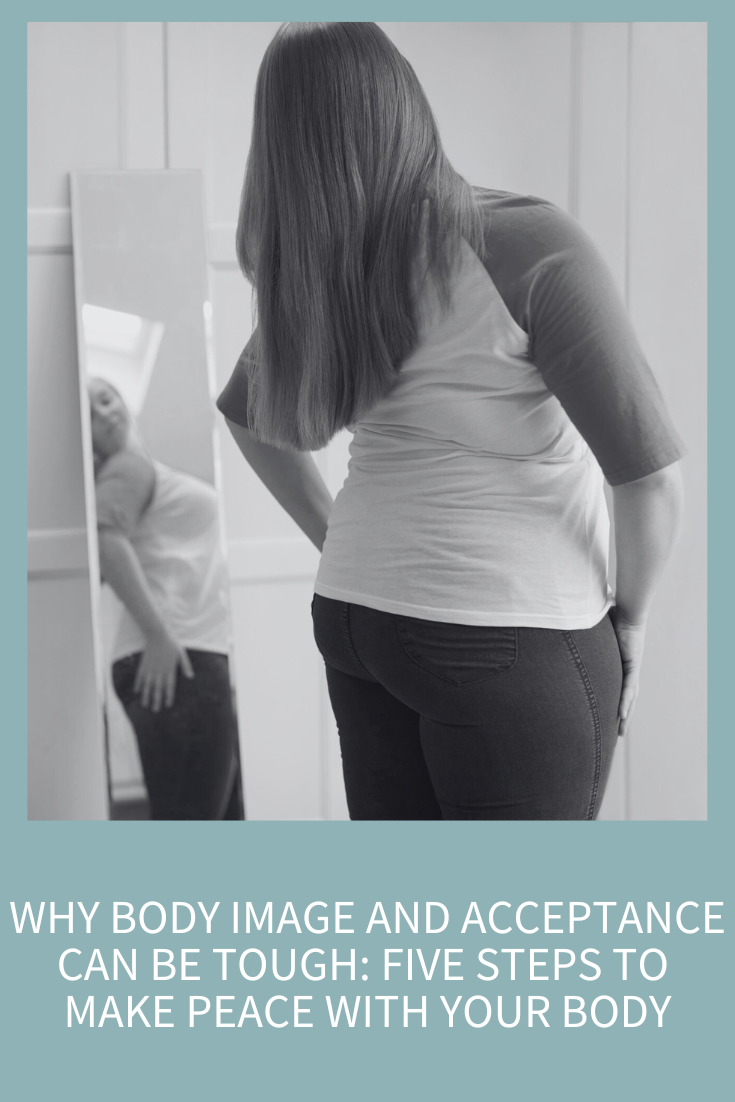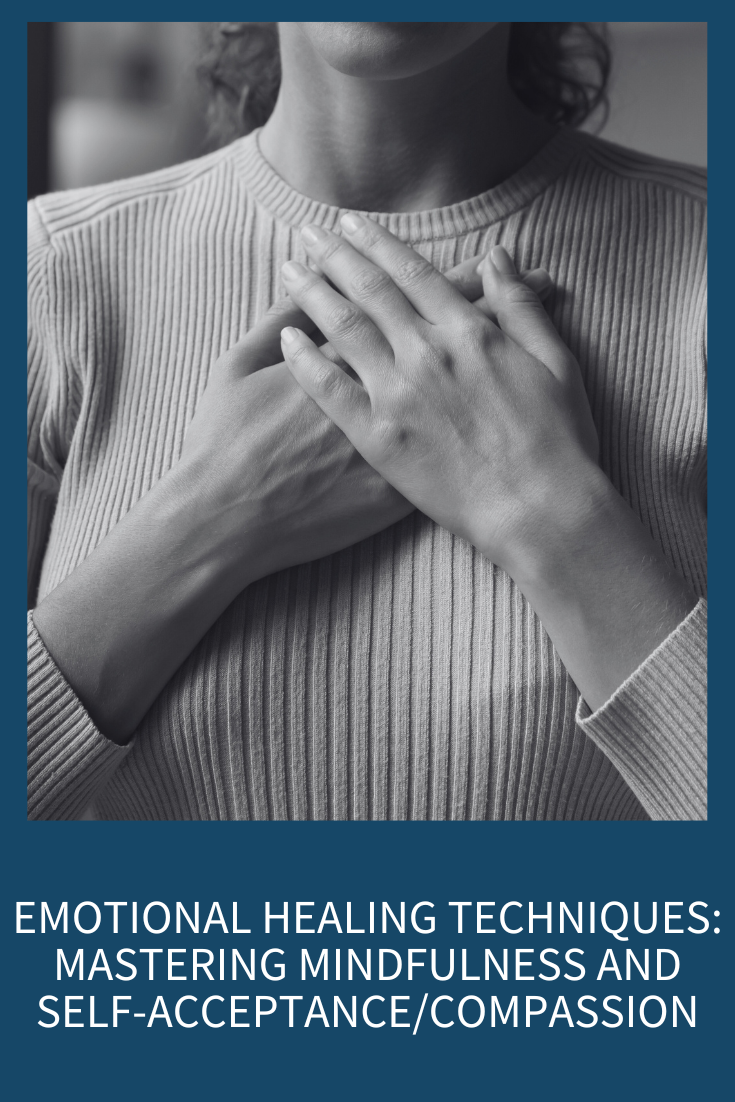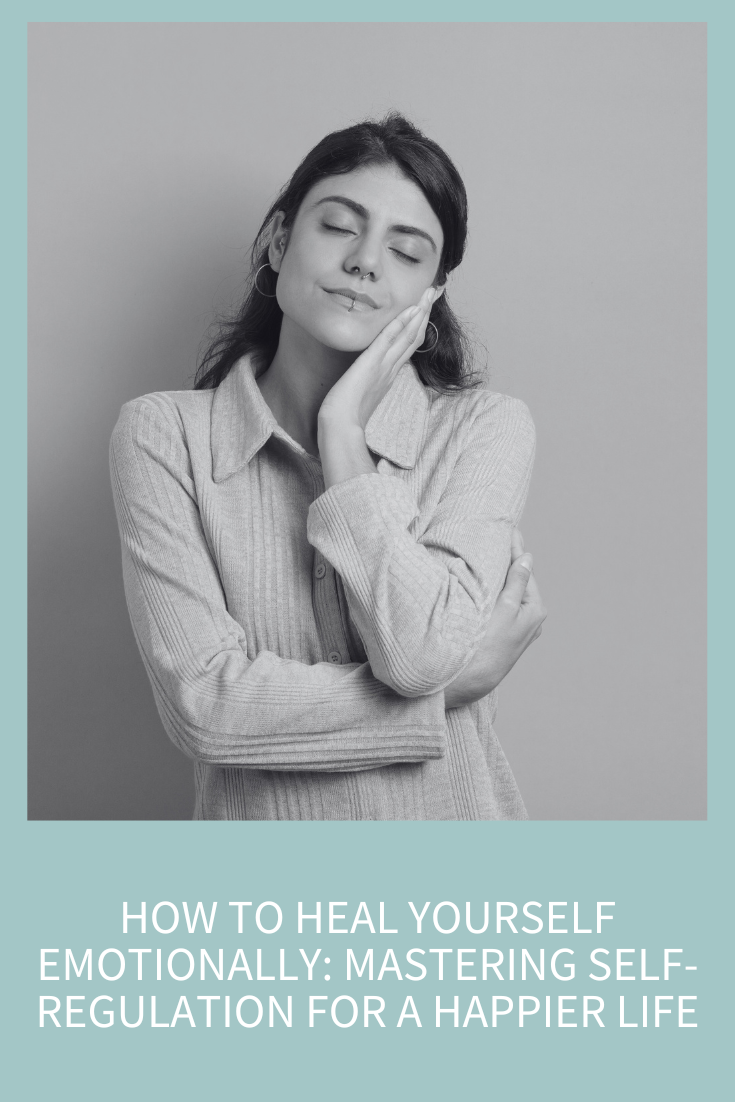
If you’re listening to me right now, you’ve felt some kind of decline in your relationship or, as the song goes, “you’ve lost that loving feeling.” Or maybe you just want to make sure that decline never happens to you. Either way, it’s important to know that you can absolutely continue to have a strong physical connection and fall more in love with your partner as the years progress. But how do you do it? Today, we’re going to discuss the research (as always), and then I’m coming at you with my top five tips for getting the sizzle and that loving feeling back in your relationship.
16-minute read
A caveat before we get going: I’ve written this completely from a heterosexual point of view. While I work in my practice with LGBTQ+ clients, the vast majority of my work is with people who identify as heterosexual. I don’t mean to dis-include anyone, but I’ve found it difficult to write in a way that’s completely inclusive. I’m not saying I don’t need to work on this; I’m saying that this is what I’ve got for you today. If you’re one of my beautiful listeners who identifies in any way other than heterosexual, please know that I see you and that my tips will absolutely apply to you, but the research I quote is done mostly with heterosexual individuals, so that should be taken into account.
Sharing in a Relationship
Being in a long-term relationship means a lot of sharing. On the one side, all that sharing means divvied up household chores, co-parenting if you’ve got kids, splitting expenses, and all the things that come with having a life together. On the other side of sharing is a lot of time together, which breeds familiarity. And a lot of familiarity usually breeds resentment.
I’ll often meet with a couple who have different ideas when it comes to all this sharing. Often the husband or boyfriend thinks he’s doing plenty, but the girlfriend or wife feels like he’s not pulling his weight. Then she feels short-changed, unappreciated and like she has to control everything, or it doesn’t get done. I’ve then got a man who feels like he’s unappreciated (it seems like nothing he ever does is enough), he feels short-changed (because she’s not having enough sex with him), and he doesn’t feel trusted (because she keeps “reminding” him about things).
On top of that, he’s clipping his toenails and letting them fall on the floor, or he walks in the room and farts (and even thinks it’s funny), so she’s feeling like she never wants to have sex with him again! Day after day, year after year of this and some feelings start to dominate, such as resentment, boredom, loneliness, anger and frustration. This leads to feeling disconnected and ultimately to feeling like you’ve fallen out of love.
Check out my YouTube Channel for actionable tips and tools to help you find more ease, joy, and happiness in your life and relationships!
Your Brain in Love
Helen Fisher is a biological anthropologist and Senior Research Fellow at the Kinsey Institute who has been studying brains in love for decades. She believes there are three basic types of love: sex drive, romantic love, and feelings of deep attachment for your partner. Dr. Fisher’s research shows (by way of fMRIs) that when we have those in love feelings, we have activity in three main parts of the brain.
First, we see action in a tiny spot at the base of the brain called the ventral tegmental area (VTA). The VTA is part of your brain’s reward system and part of what we call your lizard brain. This part of the brain is way below your rational, conscious thoughts. This deep level of your brain is all about pleasure, the motivation to pursue and acquire rewards, wanting, and focused attention and craving.
Another region of the brain affected when we’re in love is the caudate nucleus. This is an area associated with how the brain learns and how it stores and processes memories. In relation to being in love, it’s also in charge of reward detection and expectation.
The third part of the brain showing activity when we’re in love is in something called your A10 cells. These cells make dopamine, a neurotransmitter in charge of things like pleasure and stimulation, and spray it to other areas of your brain.
You might not be shocked to hear that these areas of the brain are also active when you do drugs, and this is why many neuroscientists compare being in love to being addicted to drugs because that intense feeling of being “in love” activates the same systems in the brain as drugs like cocaine. Dopamine activates the reward circuit, which makes love a highly pleasurable experience similar to the euphoria associated with the use of drugs or alcohol.
All of this brain chemistry is why, when you fall in love, your partner becomes super special to you. Everything they do is unique and has a distinctive meaning. You start to focus on this person, often to the detriment of everything else in your life. Do you remember when you’d be daydreaming at work about this person? Or when you’d skip work to spend the day in bed together? Or when you’d bow out of time with your friends to spend more time with your new partner?
When things are going well with your new person, you’re so happy, but when things are going badly, you likely become depressed, upset and obsessive in a new way. “What went wrong?” “I wish I hadn’t sent that text. I ruined it!” You might start (or continue) stalking their social media and speaking non-stop to your friends about the relationship, repeating yourself over and over.
Either way, at this point, the other person is all you can think about, and you feel an intense energy in relation to them. You end up with a powerful craving for an emotional connection and likely can’t wait to hear words like, “I love you” or “You’re all I can think about.” Again, the majority of these feelings are caused by that dopamine increase, which stimulates these ancient brain networks associated with craving, wanting, and intense focus and motivation around the other person.
Why You Fall Out of Love
There are two main ways we fall out of love.
The first has to do with our chemicals. When we’re in that initial burst of romantic love, it lowers the levels of a neurotransmitter called serotonin. Serotonin is another contributing factor in all that single-minded concentration and obsession with your partner. These feelings can also cause you to be blind to your partner’s annoying or undesirable traits in the early stages of your relationship. In other words, you don’t see him chewing with his mouth open or how she steals all the covers at night; your brain chooses to focus only on the qualities you like.
After you’ve been in love for some time, however, you develop a tolerance to these pleasurable chemicals, including this serotonin, and voila! There are all those annoying traits on full display! Related to this, being in love deactivates the neural pathway responsible for negative emotions. So, your ability to make critical assessments of your partner shuts down. This is the physiological basis for the old quote, “Love is blind.” When we’re falling out of love, we start to see the “negative” that was always there but couldn’t see.
As you see your partner how they really are, disillusionment starts to set in. As the years go by and you have children, a mortgage or the other stresses and components of building a life together, these new “faults” take on an even greater space in your brain because you’ve got more invested now, which means more to lose! So, things that weren’t such a big deal in the beginning, seem like a bigger deal now.
The other main way we fall out of love is this familiarity and the novelty wearing off of the relationship. In her book, Mating in Captivity, the amazing Esther Perel notes that becoming more comfortable and stable in your relationship is the very thing that makes having an erotic sexual encounter with your partner more difficult. She argues (and I think correctly) that erotic energy feeds on newness and novelty. Once your relationship is past that early honeymoon phase, it often becomes predictable and expected, which leads to boredom in the bedroom. She explains this as the battle between domesticity and eroticism. To feel uninhibited desire, you need a little distance, secrets, mystery and even some anonymity. It’s not hard to see how all this intimacy and closeness in our relationship can get in the way of that.
Related to this is the confusion around what comforting and comfortable mean in a relationship. Comforting in a relationship is awesome. Comforting is knowing that the other person has your back no matter what. Comforting is snuggling up on a cold night and feeling warm and safe together. However, being too comfortable in your relationship can be a problem. You leave the bathroom door open, think it’s funny to fart in front of your partner, ask your partner to look at that mole on your neck, wear ratty sweatpants from college, hit the gym and decide not to shower and flop into bed because you’re tired.
Then you further confuse all this comfortableness with intimacy. You think they’re the same, but they’re not. I can hear you now, “Hey, we’ve been together a long time. That’s the best part; you get to relax!” Of course, I want you to be relaxed and at ease with your partner, but I also want you to remember that your partner always deserves your thoughtfulness and attention. It’s not thoughtful or attentive to not turn on the fan if you’ve taken a big dump or to pick your nose in front of your partner. It’s not thoughtful or attentive to ignore what has to be done around the house. It’s not thoughtful or attentive to sit in front of a screen every night and not try to think of a way to have a deeper connection with your person.
Intimacy is about vulnerability and emotional closeness, not just relaxing around another person. I want you to be emotionally relaxed, of course, but that doesn’t need to translate to scratching your balls while you’re having a conversation. Would you have done that on the first date? Really?
Want to feel happier and more connected in your relationship? Buy my #1 bestselling book on Amazon, Be Happily Married: Even If Your Partner Won’t Do a Thing.
Regaining the Spark
Let me say again that you do not need to fall out of love. There doesn’t have to be any inevitable downward slide in your relationship. Let me tell you about research by Helen Fisher and her colleagues, as well as studies done at Stonybrook. When they compared fMRI scans of couples who say they’re still in love after 25 or 30 years of marriage with those of newly in love couples, they found that “the pattern of activity in the participants’ dopamine reward systems was the same as that found in the brains of participants in early-stage romantic love.”
You don’t have to fall out of love! You can get that in love, butterflies in the stomach, rush of focus and euphoria again (or for the first time for some of you out there). If your relationship has transitioned from passionate, romantic love into either compassionate love or a feeling of being completely out of love, there are things you can do!
In their book, The Normal Bar, researchers Chrisanna Northrup, Pepper Schwartz, and James Witte completed a huge survey of over 70,000 people in 24 countries in their quest to find out what couples with a great sex life were doing. What they found is that couples who are rocking it in the bedroom (and on the kitchen counter) are doing the following:
- Have make-out sessions and kiss each other passionately (another German study found that men who kiss their wives every day live five years longer than the men who don’t)
- Kiss and touch passionately, but non-erotically, every day (even in public). I often tell my clients to think of at least doubling the amount of time they kiss and hug for a week and see what shifts.
- Cuddle together non-sexually
- Say “I love you” and mean it every day.
- Give surprise romantic gifts
- Keep playing and having fun together
- Make sex a priority, not the last item of a long to-do list
- Talk comfortably about their sex life
- Have dates and take romantic vacations
- Overall, they’re mindful about turning toward one another and giving one another their attention
There have also been studies saying what “not to do” if you want to maintain a good sexual connection.
The Sloan Center at UCLA studied couples where both worked and also had young children. What they found in couples without a good sex life were the following:
- They spent very little time together overall
- The men tended to be job-centered, while the women tended to be child-centered
- They talked a lot about their enormous to-do lists
- Made everything else a priority instead of their relationship
- Basically, they had become roommates leading parallel lives
Now let’s get to some actionable tips!
Abby’s Top 5 Tips for getting the sizzle and that loving feeling back in your relationship
Tip #1 Build Intimacy the way your partner likes
Women and men experience “together time” differently. Women get a feeling of emotional closeness from face-to-face speaking. Women want to “anchor their gaze” with their partner and feel that undivided attention. Biological anthropologists note that this comes from hundreds of thousands of years of women having babies and looking into their eyes as they breastfed, spoke to them, and taught them. This is how they created that special bond.
In the same way, women would sit in circles with other women as they washed, cooked, crafted and sewed, and they would have conversations while looking at one another over their work. They sat in a circle so they could all see one another and bond. Women want to do this with the men in their lives. I’ve had countless women in my office who were dumbfounded that their partners didn’t realize that texting was not enough and getting flowers or gifts didn’t help them feel closer to their mates.
Now, this isn’t going to work for men to get that “in love” feeling. In their eons-long history, men have built their emotional closeness and intimacy from side-by-side doing. Once again, biological anthropologists believe this comes from millions of years of hiding behind a bush next to one another and staring at the animal they wanted to take down and kill together. You can’t throw a spear at a deer or hit a buffalo’s head with a rock if you are looking at your hunting partner. As Helen Fisher says, “For millions of years, men faced their enemies but sat side-by-side with their friends.” In fact, in studies of men bonding with one another, they’ve found that when one man looks up, the other actually looks away.
Tip #2: Don’t be Overly Familiar
As I’ve said, all that goes on with sharing a home and life leads to a lot of overfamiliarity. This overfamiliarity makes it hard to keep physical intimacy fresh and fun. I want you to make sure to keep some things private. Need to pee? Close the damn bathroom door! Need to fart? Leave the room. Have some weird skin tag on your inner thigh? Show it to your best friend or your doctor, not your partner.
You’ve got to do three things.
- You want to find ways to create some healthy distance in your relationship.
- You want to be conscious about bringing novelty or newness into your relationship.
- You’ve got to make your sexual relationship a priority and not last on a to-do list at the end of a long day.
Tip #3: Focus on micro-connections
In episode 252, I did a whole episode on micro-connections. I always say that great relationships aren’t built in a day. Great relationships are built daily. Lasting emotional connection is built from micro-connections. These don’t happen in one fell swoop, like date night or a great vacation. These happen over the course of a day, that builds into weeks and months. It’s all the little attentions you pay to your partner to connect.
I have a bunch of tips in that episode, but my favorite one is this. When your partner walks in the house, stop whatever you’re doing and physically go greet them at the door. Give them a kiss or hug (or both) and welcome them home. Make eye contact and be intentional with having them feel the love and happiness you feel that they’re home.
If your partner asks you a question or speaks to you, stop what you’re doing and give them your full attention. Put down your phone, turn down the volume on the TV, look up from your computer and stop typing. Full. Attention. It only takes a minute.
Tip #4: Get Naked
Harvard researchers Richard Schwartz and Jacqueline Olds (who also happen to be married) have studied love for decades also and they identify something they call the “rustiness phenomenon.” Olds says, “Couples get out of the habit of sex, of being incredibly in love, and often for good reasons: work, children, a sick parent. But that type of love can be reignited.” Sexual activity activates the brain’s reward circuit, making couples desire each other more.” She said, “That alone may be enough to bring some couples back to those earlier, exhilarating days when all they could think about was their newfound love.”
Sexual activity and touching also increase oxytocin and vasopressin levels. These hormones are all about bonding and attachment and have big roles in pregnancy, nursing, and mother-infant attachment. They’re also released during sex and skin-to-skin contact. Oxytocin deepens feelings of attachment and makes couples feel closer to one another after having sex. Oxytocin, also known as the love hormone, deepens feelings of attachment, makes couples feel closer after sex, and triggers feelings of contentment, calmness, and security.
Dr. Luis Garcia of Rutgers University also believes that having sex is a good way to reignite those earlier feelings. He points to a number of studies that show that sexual satisfaction and satisfaction with the relationship are correlated with one another. Studies have consistently found that having a satisfying sexual life is a key trait of people in successful long-term relationships.
Tip #5: Think of them lovingly
Dr. Lucy Brown, a neuroscientist at the Albert Einstein College of Medicine, has been involved with many studies looking at the fMRIs of people in love. One of the things she’s noted is that all those areas in the brain we discussed earlier that light up when we’re in love also light up when participants simply looked at pictures of their partner and thought loving thoughts!
If you’re looking to get that spark back, reach for a picture of your partner or even one of the two of you that you love and consciously think loving thoughts about your person. If it’s a picture of the two of you laughing at a party, think of that day and the fun you were having. Take yourself back to a time that you felt in love and play that like a movie in your head while you look at the picture. Practice this for just three minutes per day, every day for a week, and you’ll begin to feel differently about your partner.
Research and Resources for Getting the Sizzle and that Loving Feeling Back in Your Relationship
Instead of Date Nights Work on Micro-Connections
Anatomy of Love: A Natural History of Mating, Marriage, and Why We Stray by Helen Fisher
Mating in Captivity: Unlocking Erotic Intelligence by Esther Perel
Garcia, Luis T. Perceptions of sexual experience and preferences for dating and marriage. The Canadian Journal of Human Sexuality; Toronto Vol. 15, Iss. 2, (2006): 85-94.








